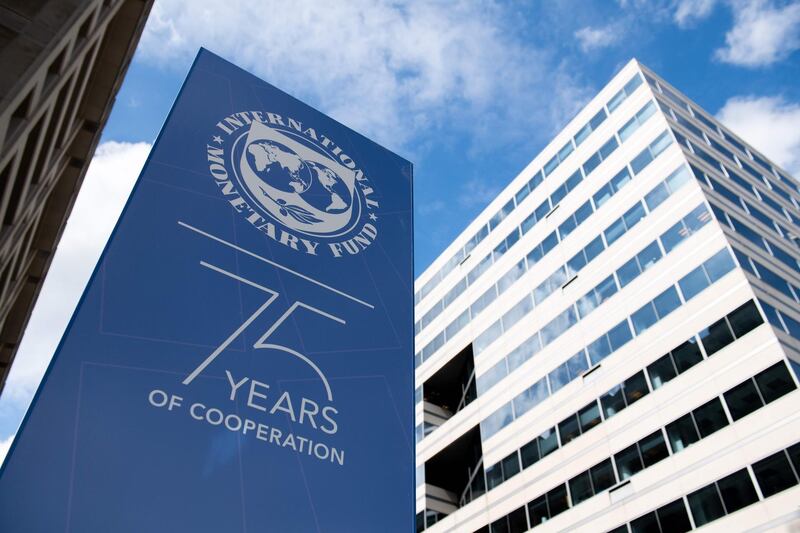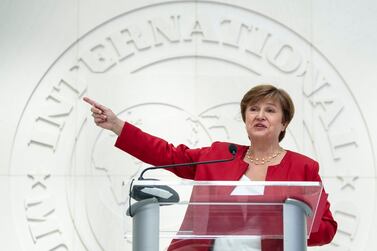The ongoing trade conflicts could cost the global economy around $700 billion (Dh2.57 trillion), or 0.8 per cent of its output by 2020 as trade growth across the world comes to “a near standstill”, according to the International Monetary Fund.
“The results are clear. Everyone loses in a trade war,” Kristalina Georgieva said on Tuesday in her first speech after coming to the helm of the Washington-based lender on October 1.
“We need to work together now and find a lasting solution on trade. This requires difficult decisions and political will. But, it is worth it.”
The loss to global GDP is approximately the size of Switzerland’s entire economy and even if trade growth picks-up in 2020 the current rifts could lead to changes that would last a generation. The results will be “broken supply chains, siloed trade sectors [and] a 'digital Berlin Wall' that will force countries to choose between technology systems”, she said.
Trade tensions, Ms Georgieva said, are in part responsible for the weakening of worldwide manufacturing activity and investment. There is a serious risk that services and consumption sectors could soon be affected as the “fractures are spreading”.
Discord between the US and China, the world’s two biggest economies, forced the World Bank and the IMF to revise down their projections for the world economy this year. The IMF in July said global economic growth, already at the lowest level since the 2008 financial crisis, is estimated to slow to 3.2 per cent in 2019, a 0.1 percentage point drop from the fund's 3.3 per cent projection in April. Global equities swung wildly earlier this year when US President Donald Trump threatened to further escalate the trade war and eventually imposed an additional 15 per cent tariff on $112 billion (Dh411bn) in Chinese goods on September 1.
Talks have broken down several times between Chinese and US negotiators and there are no signs the two sides will be able to resolve their difference any time soon. The World Bank has already revised global trade growth for this year down by a full percentage point, to 2.6 per cent — the weakest since the 2008 global financial crisis.
Ms Georgieva, however, said that some countries do need to address legitimate concerns related to their trade practices, which includes dealing with subsidies, as well as intellectual property rights and technology transfers.
Ms Georgieva, 66, a former World Bank chief executive, said the global economy was in a synchronised upswing two years ago with nearly 75 per cent of the world’s economies in growth mode. Today, even more of the world economy is moving in synch, but this time growth is decelerating.
“In 2019, we expect slower growth in nearly 90 per cent of the world [economies]. The global economy is now in a synchronised slowdown,” she said.
The IMF will release its World Economic Outlook next week, which will show downward revisions for 2019 and 2020.
Across advanced economies, including in the US, Japan, and especially the euro area, economic activity overall is softening. In some of the largest emerging markets, such as India and Brazil, the slowdown is even more pronounced this year, she said, adding growth in China is also slipping gradually after the rapid pace of expansion for many years.
If the global economy slowed more sharply than expected, a co-ordinated fiscal response may be needed.
“Let me be clear. We are not there [yet],” she said.
The IMF’s new analysis shows that if a major downturn occurs, corporate debt at risk of default would rise to $19 trillion, or nearly 40 per cent of the total debt in eight major economies. This is above the level seen during the financial crisis, she added.








